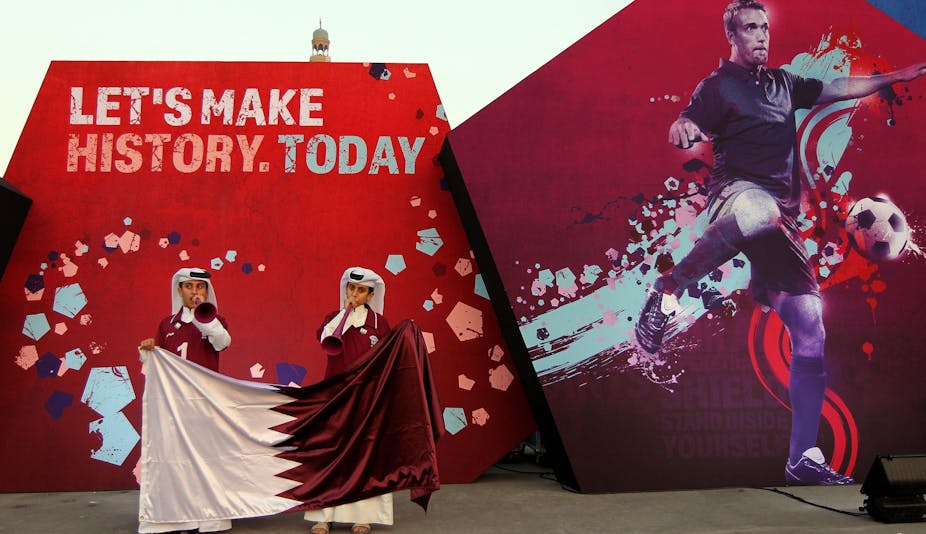I was at a high-performance coaching conference in The Netherlands when FIFA President Sepp Blatter announced the soccer World Cup hosts of 2018 and 2022. I skipped a few keynote speeches to watch the announcement on television in the conference bar.
Russia was an expected winner, and one that most football loving folk can at least live with. Russia is a mega country with a lot of people living there, many of whom like the game, or at least may like the game after being exposed to a World Cup hosted on their home turf.
In other words, some logic seems to have been applied to the way that Russia was judged as a potential host of the 2018 world football finals.
Despite backroom gossip that Prime Minister Vladimir Putin suggested to a few Russian billionaire energy barons that their not-so-hard-earned cash could be directed towards positively influencing FIFA decision makers (and IOC members for that matter), football is on a growth track in Russia.
However, the announcement that Qatar was going to organise the biggest sporting show on earth in 2022 not only stunned me, it made me sick to the stomach.
In utter disgust I lamented to my fellow watchers that FIFA had now openly sold out to private interests and that the world game was no longer. It had become a tool of ultra rich and devious power brokers to advance their personal interests of wanting to play on the world stage.
I do not have to spell out why Qatar as a World Cup host will utterly fail to deliver on the requirements of the tournament, and indeed on the promise of leaving a football community legacy.
A legacy to whom? Very few people other than the ruling sheikhs in the Middle East care about football. I have been there, worked there, and worked for the local leaders.
The experience of watching football games in climate-controlled stadiums not only defeats the essence of the beautiful game, but it also is a blatant slap in the face to the efforts of so many around the world to save energy and reverse global warming – and an insult to the millions of people who love the game but cannot afford to feed their family.
And unlike (South) Africa, Qatar does not require football as a tool to stimulate social change and economic development.
A power struggle

At the time it seemed all too obvious, Mohamed Bin Hamman, the Qatari Executive Committee member of FIFA had b(r)ought the World Cup to his country in return for another unopposed presidential term by the incumbent Blatter.
But then Bin Hamman decided to run anyway. He must have thought that Blatter’s number was up, or at least that 13 was his lucky number in the 24-member Executive Committee.
But the plot to unseat Blatter turned against him – Bin Hamman (rather than Blatter) is to answer corruption charges, and he had to throw in the towel. Although Bin Hamman denies the charges, Blatter will be chosen as FIFA president unopposed on Wednesday.
The clean-up process
So how to clean up FIFA and ensure a democratic and transparent decision making process in regard to all world football matters?
Sadly the answer to that question is not simple, and may even be impossible to find. As long as there is no global body policing ethical (football) business conduct, FIFA will remain an old boys club of inherited power who can do what they want.
If Switzerland does not want them they will go to any of their 208 member states who are keen to increase their relative standing with the governors of the game.
With the power to expel countries or players from participating in the planet’s most coveted tournament they will always have the last word.
And by the time we witness the disaster that will be the World Cup in Qatar, a new Machiavelli will rule and shift the blame for selecting Qatar to those who cannot be punished for it.
It will take a number of courageous countries (some Australian politicians are asking for the country’s bid money back!), national associations, and clubs or even star footballers to stand up against the supremacy of FIFA and decide that enough is enough.
Only they have the power to move the masses, and convince billions of people to turn against the governing body that is the keeper of the code.
The FIFA Executive may then finally realise that the game is not theirs, but that it belongs to you, me, our kids and our communities.

